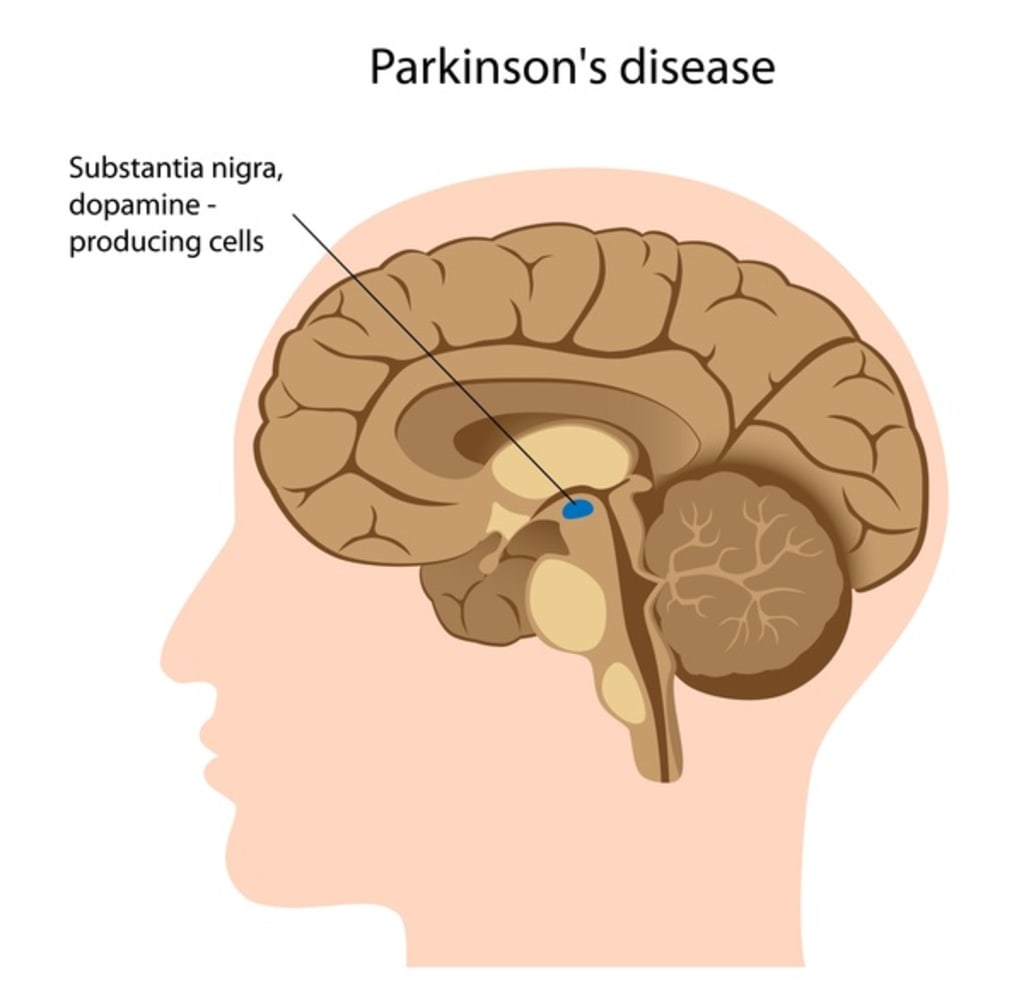Parkinson's Disease
Parkinson's Disease

Parkinson's disease is a chronic and progressive neurological disorder that affects millions of people worldwide. It is the second most common neurodegenerative disease, after Alzheimer's disease. Parkinson's disease is characterized by the loss of dopamine-producing neurons in the brain, leading to a range of motor and non-motor symptoms.
The symptoms of Parkinson's disease can vary widely from person to person and can include tremors, stiffness, and slowness of movement. Other common symptoms can include difficulty with balance and coordination, changes in speech and handwriting, and mood disorders such as depression and anxiety. In the later stages of the disease, individuals may experience more severe symptoms such as difficulty with swallowing and cognitive decline.
There is currently no cure for Parkinson's disease, and treatment is focused on managing symptoms and improving quality of life for individuals and their families. Some of the most commonly prescribed medications for Parkinson's disease include levodopa, which is converted into dopamine in the brain, and dopamine agonists, which mimic the effects of dopamine in the brain. Other treatments may include deep brain stimulation, which involves implanting electrodes in the brain to help regulate movement, and physical and occupational therapy to help improve mobility and quality of life.
In addition to medication, lifestyle changes can also play a significant role in managing Parkinson's disease. Regular exercise, a healthy diet, and social engagement can all help improve motor function and delay the progression of the disease. It is also important for individuals with Parkinson's disease to stay mentally and socially active, as this can help improve quality of life and delay the onset of symptoms.
Preventing Parkinson's disease is another important area of focus, and there are several strategies that individuals can use to reduce their risk of developing the condition. Maintaining a healthy lifestyle is one of the most effective ways to reduce the risk of Parkinson's disease, with regular exercise, a healthy diet, and avoiding smoking and excessive alcohol consumption all being important factors. Staying mentally and socially active can also help reduce the risk of developing Parkinson's disease, as can managing chronic health conditions such as high blood pressure and diabetes.
In addition to managing symptoms and reducing the risk of Parkinson's disease, there are also several support resources available for individuals and families affected by the condition. Parkinson's disease can be a difficult and challenging condition to manage, and support from family, friends, and healthcare professionals can be invaluable in helping individuals cope with the physical and emotional demands of the disease.
Support groups and counseling services can also be helpful for individuals and families affected by Parkinson's disease, providing a safe and supportive environment in which to share experiences and learn from others. Additionally, respite care and other support services can help individuals and families manage the practical challenges of caring for someone with Parkinson's disease, allowing them to take a break and recharge.
In recent years, there has been significant research into the underlying causes of Parkinson's disease and potential new treatments. This includes the development of new medications that target different pathways in the brain, as well as gene therapy and stem cell therapy. Additionally, there is increasing interest in the potential role of lifestyle factors such as diet and exercise in reducing the risk of Parkinson's disease and improving outcomes for individuals with the condition.
In conclusion, Parkinson's disease is a complex and challenging condition that affects millions of people worldwide. Although there is currently no cure for the disease, there are several treatments and strategies available to help manage symptoms and improve quality of life for individuals and their families. Maintaining a healthy lifestyle, staying mentally and socially active, and seeking support from healthcare professionals and support groups can all play a significant role in managing Parkinson's disease and reducing the impact of the condition on daily life
About the Creator
Doctor Nadia
I am a doctor and writer who has expertise in writing articles on different topics.






Comments
There are no comments for this story
Be the first to respond and start the conversation.